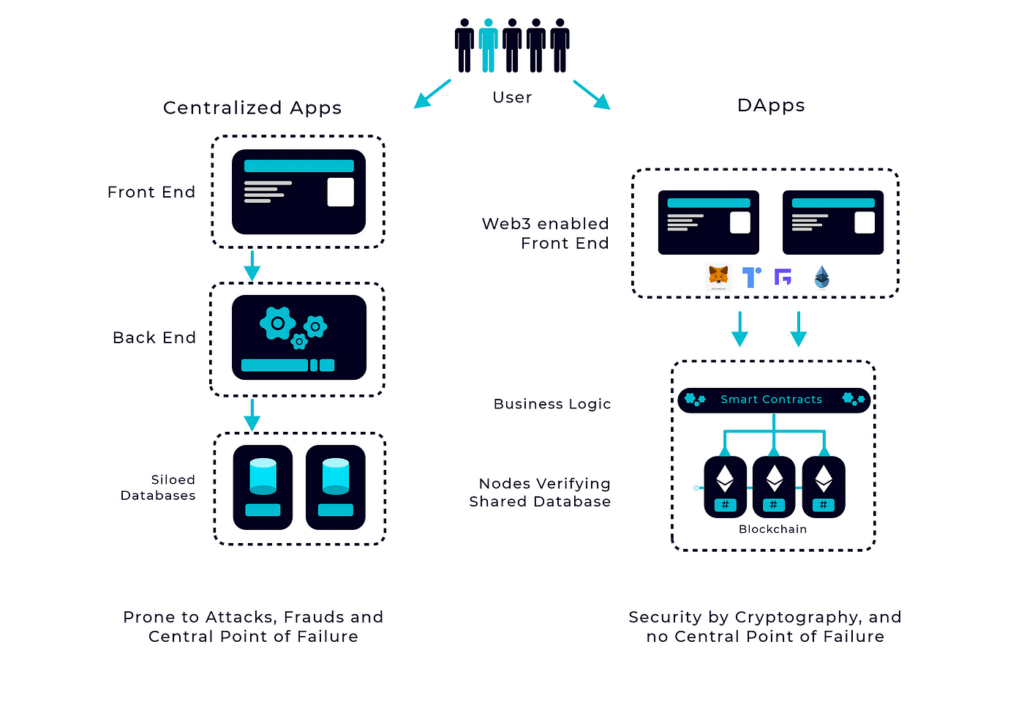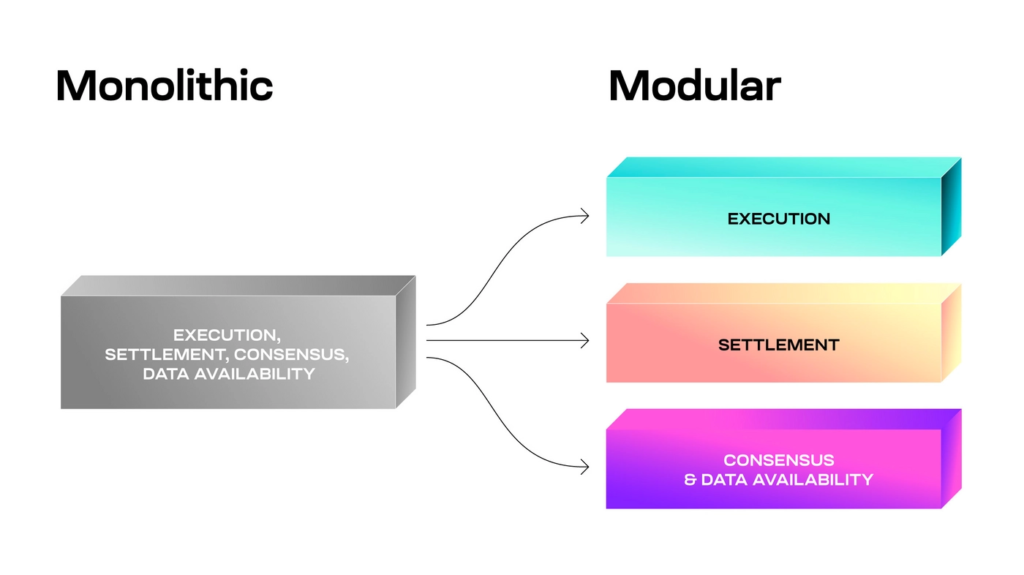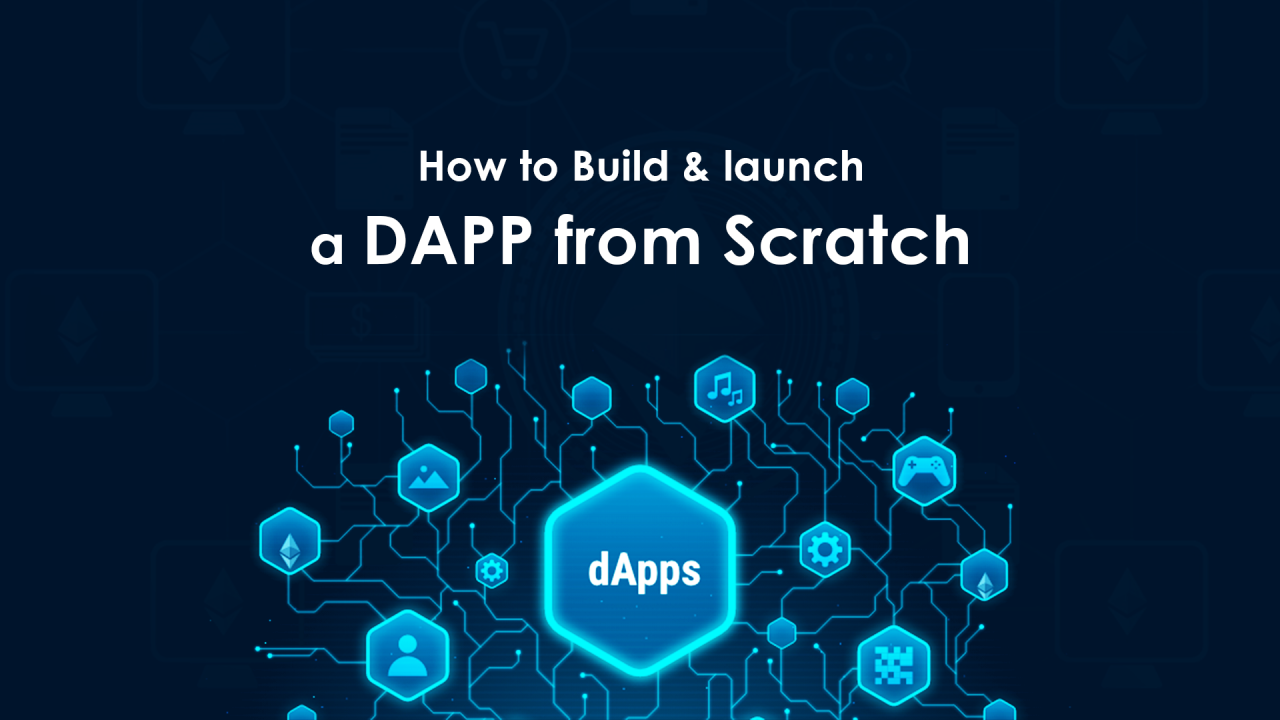
What Is a Decentralized App (DApp)?
A DApp is a blockchain-powered application that runs on a decentralized network (like Ethereum or Solana) instead of a single server. Key features:
✅ No central authority (censorship-resistant)
✅ Open-source code (transparent and verifiable)
✅ Cryptocurrency integration (native payments/tokens)
Popular Examples:
- Uniswap (decentralized exchange)
- Aave (lending protocol)
- StepN (move-to-earn game)
Prerequisites for Building a DApp
1. Essential Tools & Knowledge
| Requirement | Purpose | Resource |
|---|---|---|
| JavaScript/TypeScript | Frontend/backend logic | MDN Web Docs |
| Solidity/Rust | Smart contract development | Solidity Docs |
| MetaMask | Crypto wallet integration | Download |
| Hardhat/Anchor | Development frameworks | Hardhat Guide |

(Typical DApp structure | Source: Ethereum.org)
Step-by-Step DApp Development Guide
Step 1: Design Your Smart Contract
// SPDX-License-Identifier: MIT
pragma solidity ^0.8.0;
contract SimpleStorage {
uint256 public data;
function set(uint256 _data) public {
data = _data;
}
}Key Decisions:
- Blockchain choice: Ethereum vs. Solana vs. Polygon
- Token standard: ERC-20, SPL, etc.
- Oracle needs: Chainlink for external data
Step 2: Set Up the Development Environment
- Install Node.js:
curl -o- https://raw.githubusercontent.com/nvm-sh/nvm/v0.39.5/install.sh | bash
nvm install 18- Initialize Hardhat:
mkdir my-dapp && cd my-dapp
npm init -y
npm install --save-dev hardhat
npx hardhatStep 3: Build the Frontend
Recommended Stack:
- Framework: Next.js/React
- Web3 Libraries: ethers.js/web3.js
- UI Components: Web3Modal (wallet connection)
Example integration:
import { ethers } from "ethers";
async function connectWallet() {
const provider = new ethers.providers.Web3Provider(window.ethereum);
await provider.send("eth_requestAccounts", []);
}2025 DApp Trends to Consider
1. Zero-Knowledge Proofs (ZKPs)
- Privacy-preserving transactions
- Tools: zkSync, Starknet
2. Account Abstraction
- Smart contract wallets (ERC-4337)
- Better user onboarding
3. Modular Blockchains
- Customizable blockchain components
- Projects: Celestia, EigenLayer

Testing & Deployment
1. Local Testing
npx hardhat test2. Testnet Deployment
- Get test ETH from Goerli Faucet
- Deploy:
npx hardhat run scripts/deploy.js --network goerli3. Mainnet Launch Checklist
- [ ] Security audit (use CertiK)
- [ ] Gas optimization review
- [ ] Frontend stress testing
Key Takeaways
✔ Start with a simple smart contract
✔ Use Hardhat + React for full-stack development
✔ Prepare for 2025 trends like ZKPs
✔ Test rigorously before mainnet launch






















